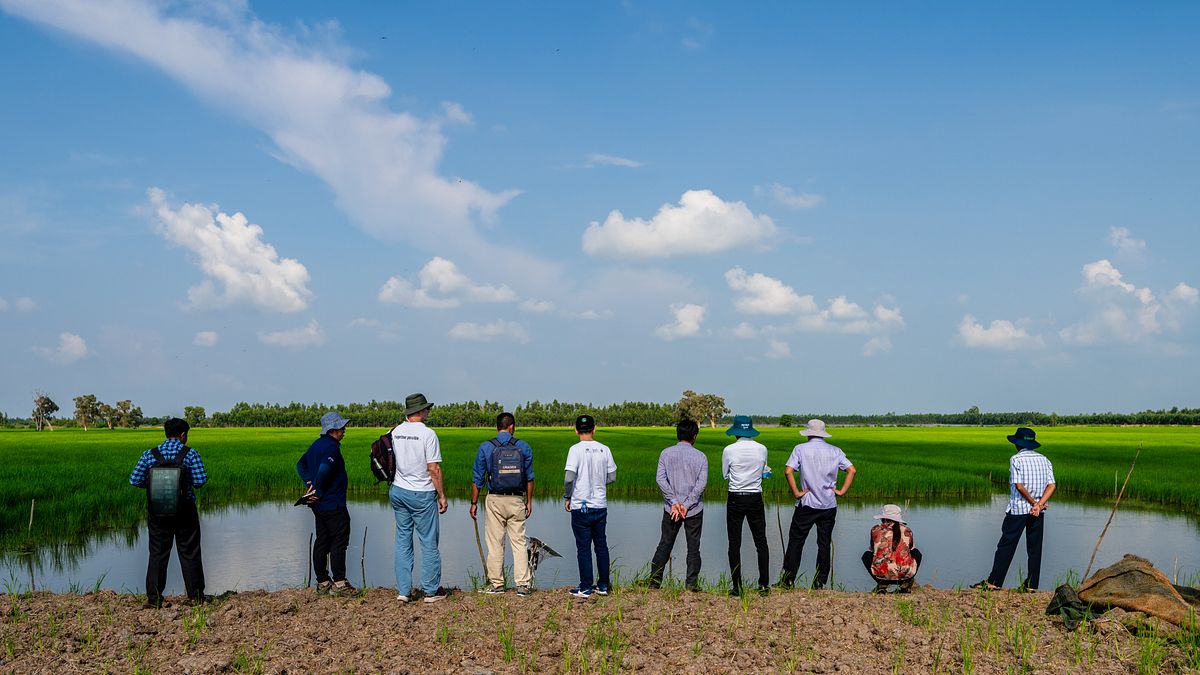For much of the country, the word flood conjures images of cataclysmic destruction and death. But in the Mekong Delta, it means life.
The regular flood cycle in the Mekong Delta supplies nutrients that nourish lush fields and waters teeming with fish. These bountiful harvests have earned the region its rightful distinction as Vietnam’s “rice basket.” But climate change in general and unsustainable land and water management in particular, is upending the flood cycle and threatening the health of the water and soil, and by extension, the entire region’s future.
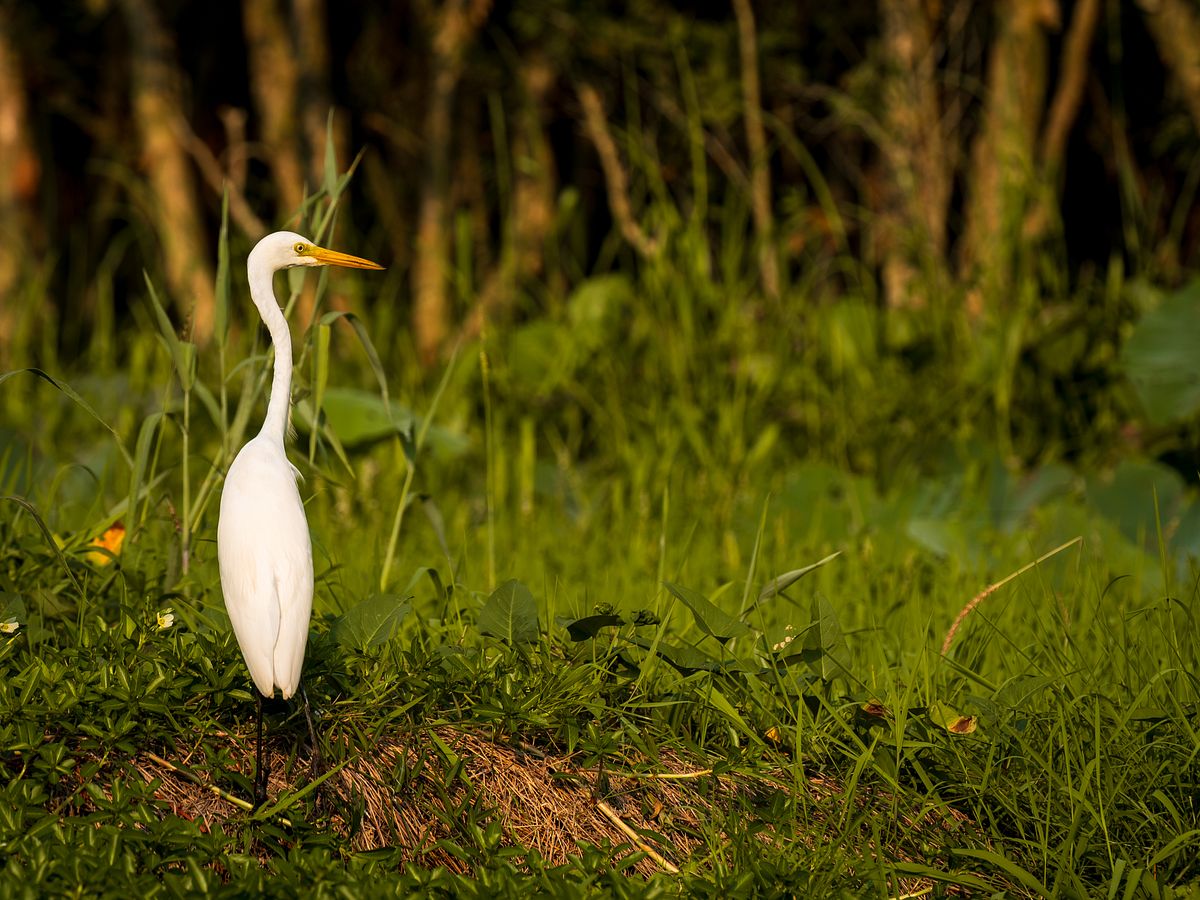
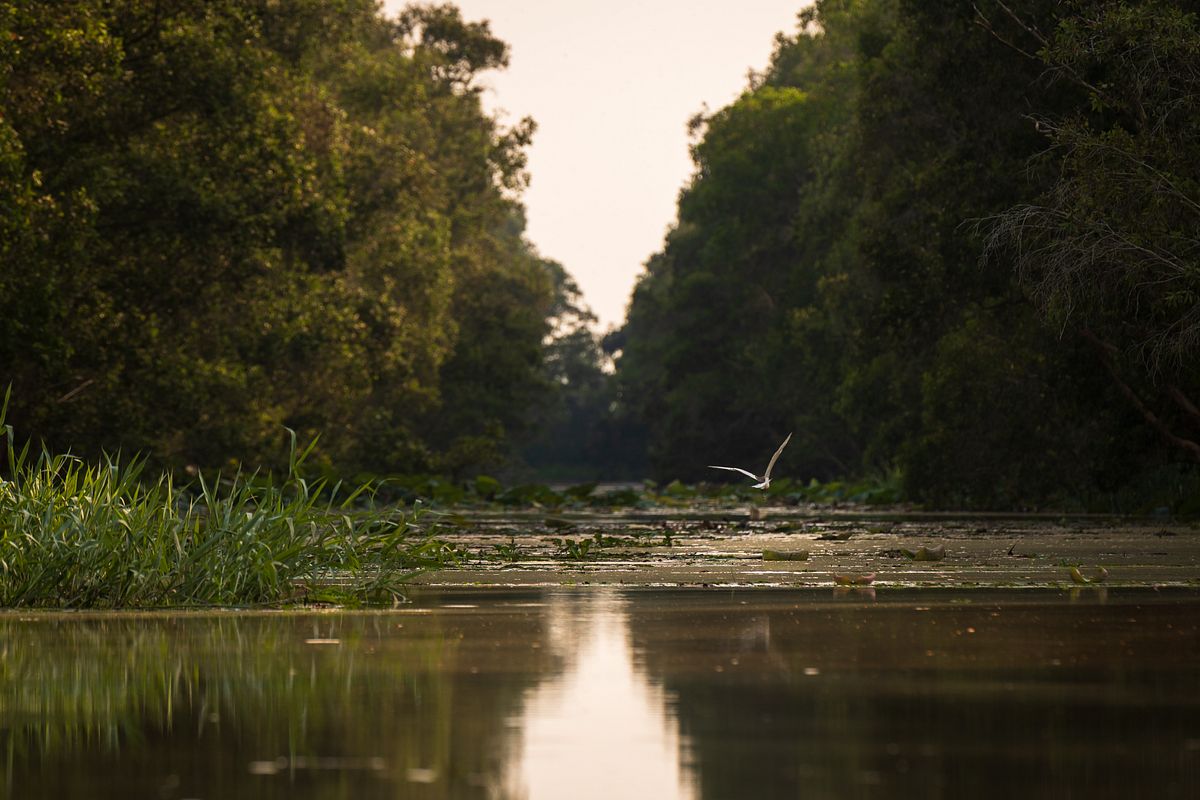
The Mekong Delta is famed for being able to support three rice harvests per year, but the third one which occurs during the natural flood season, brings with it a range of problems. To grow rice during this time, farmers construct dikes and rely on large amounts of pesticides and fertilizers. These chemicals leach into the environment, polluting waterways and poisoning native fish populations while the entire exhaustive process leaches nutrients out of the soil without allowing it time to replenish. While this system has been in place and expanding for decades, it will cause the rice fields to continue to decline in fertility and become non-productive, as well as prevent them from playing a valuable role in storing floodwater that would cause problems downstream.
Thankfully, there is hope. By transitioning the third rice crop to nature-based farming, and allowing river water to flood the fields in the wet season, sediment will naturally accumulate, improving soil quality and height and helping to prevent “shrinking and sinking.” Saigoneer ventured to two communes in Long An Province this fall to learn about nature-based solutions that underpin this restoration and protection while supporting local communities via economic opportunities. Simply, WWF-Viet Nam (World Wide Fund for Nature in Viet Nam) has introduced a program to empower farmers to grow an ancient variety of floating rice and farm fish in fields otherwise used for conventional rice harvesting while also providing access to financing to support responsible economic activities. The Climate Resilient by Nature - Mekong Project (CRxN Mekong) reveals how a more sustainable future is possible for the region.
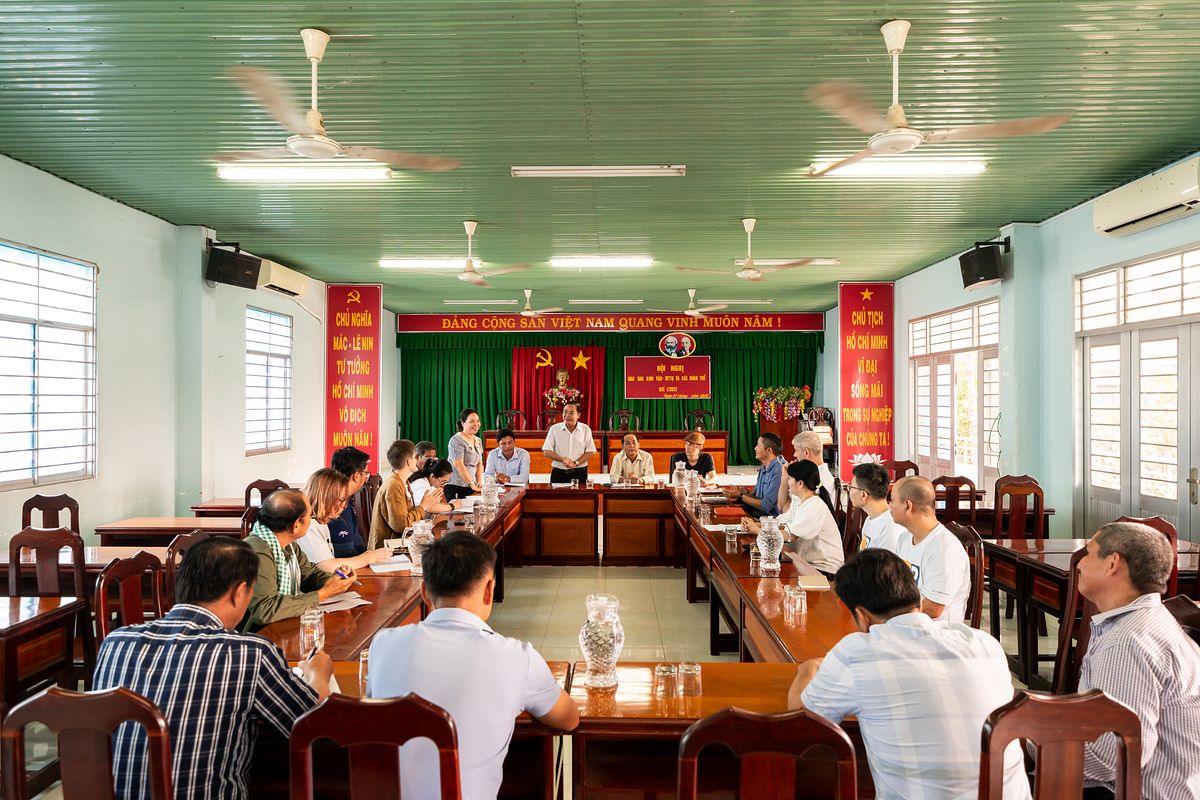
But what does such an ambitious plan look like in practice? Truthfully, our visits to Vĩnh Đại and Thạnh Hưng Communes in Long An were filled with all the familiar sights that make the Mekong Delta so easy to fall in love with. Strikingly green rice fields expanded toward tree-lined horizons; fish flourished in swaths of fenced-in water behind simple homes and women filled idle hours weaving water hyacinths and creating fish traps. Each project element was carefully designed to mitigate negative environmental impacts while remaining easy to integrate into traditional community lifestyles.
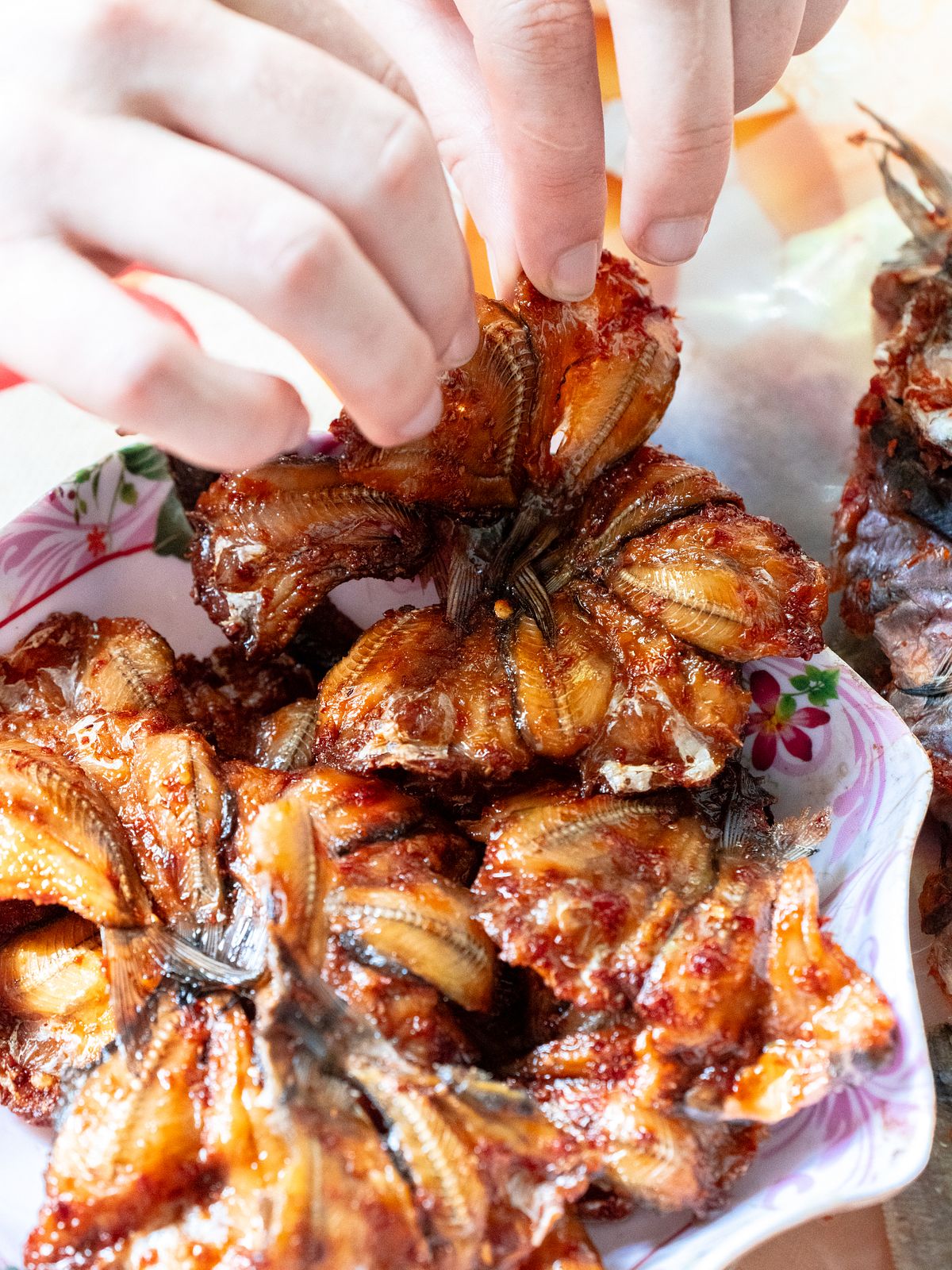
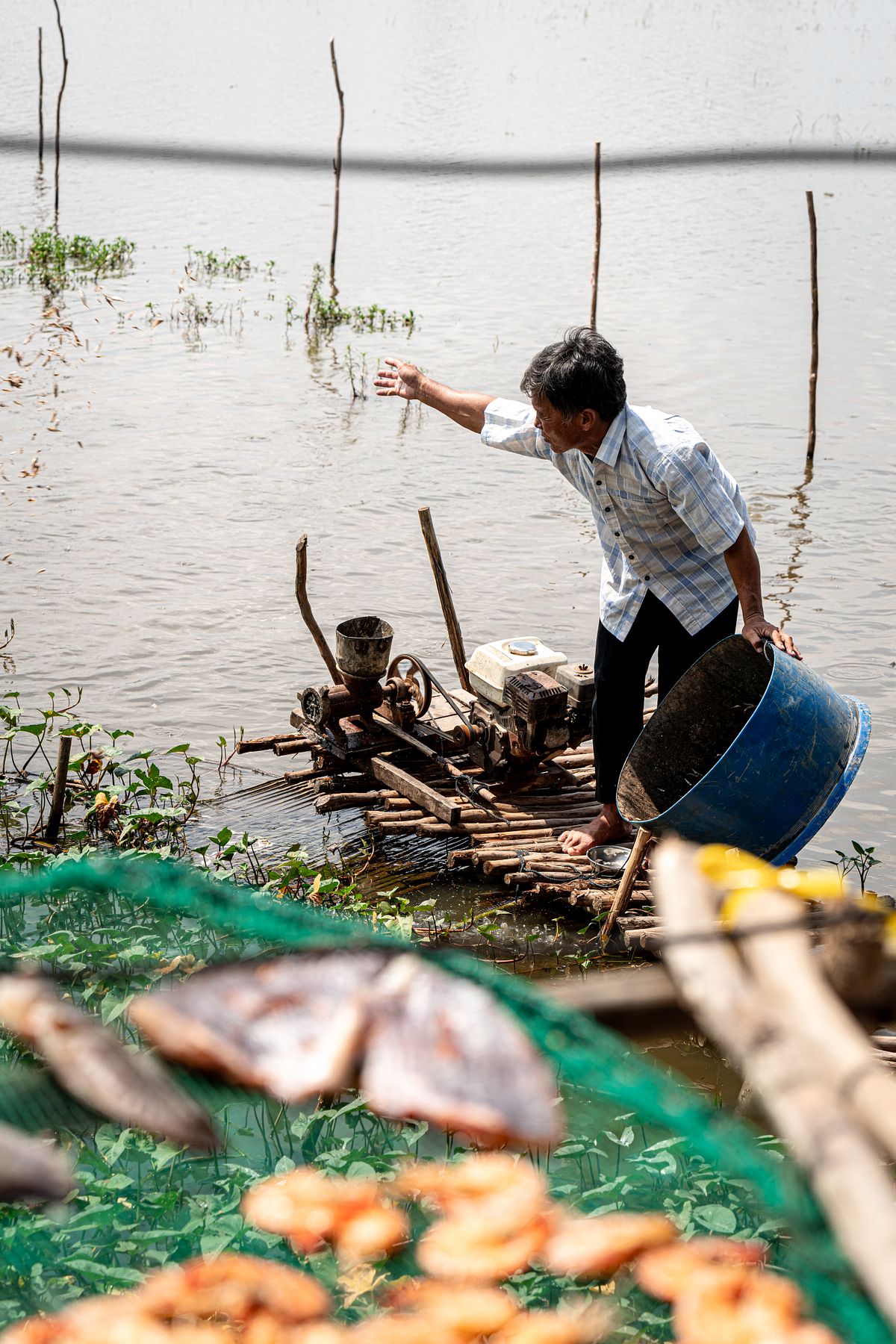
Subtly sweet with a rich umami flavor, chewy texture and undeniable freshness, the fried cá chốt (Mystus catfish) we were given in Thạnh Hưng Commune was not only delicious but a perfect encapsulation of how the CRxN Mekong Project operates. Instead of erecting barriers to grow rice during the flood season and pumping in harmful chemicals, local farmers used the area to raise fish with fingerlings and netting funded by the Project. Once harvested, the fish are cleaned and gutted, dried in a machine provided to the community and then vacuum sealed. The fish can then be sold in local markets or distributed elsewhere in the country as part of Vietnam’s One Commune, One Project (OCOP) initiative.
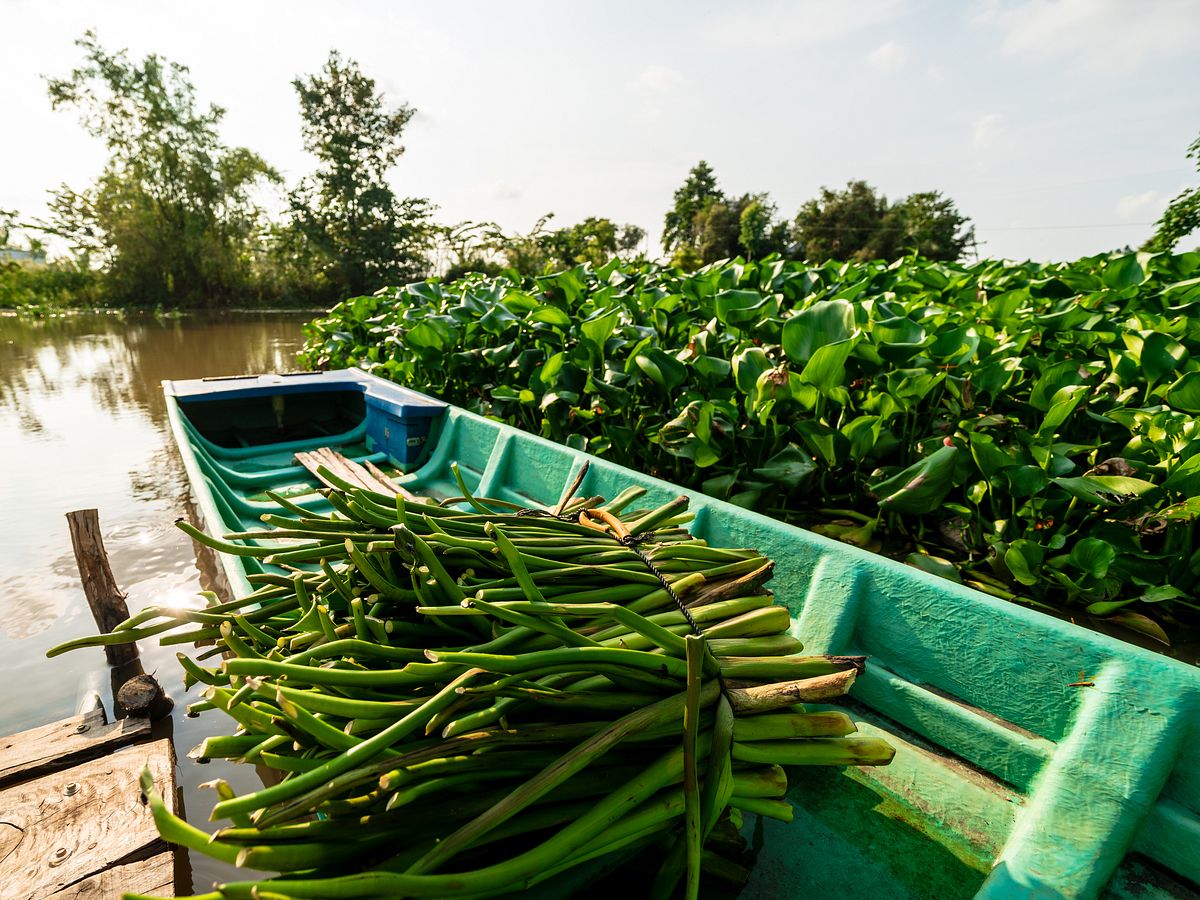
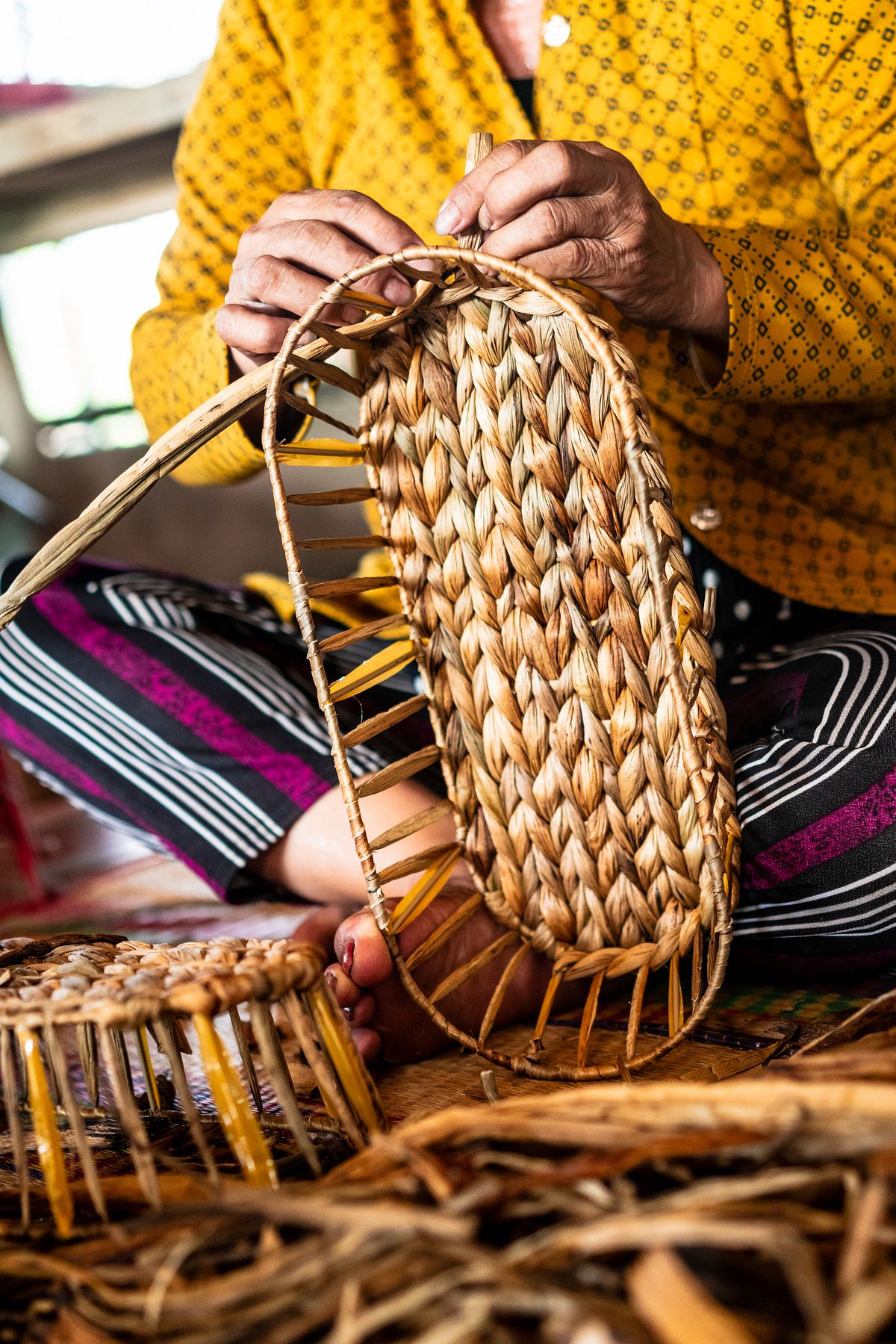
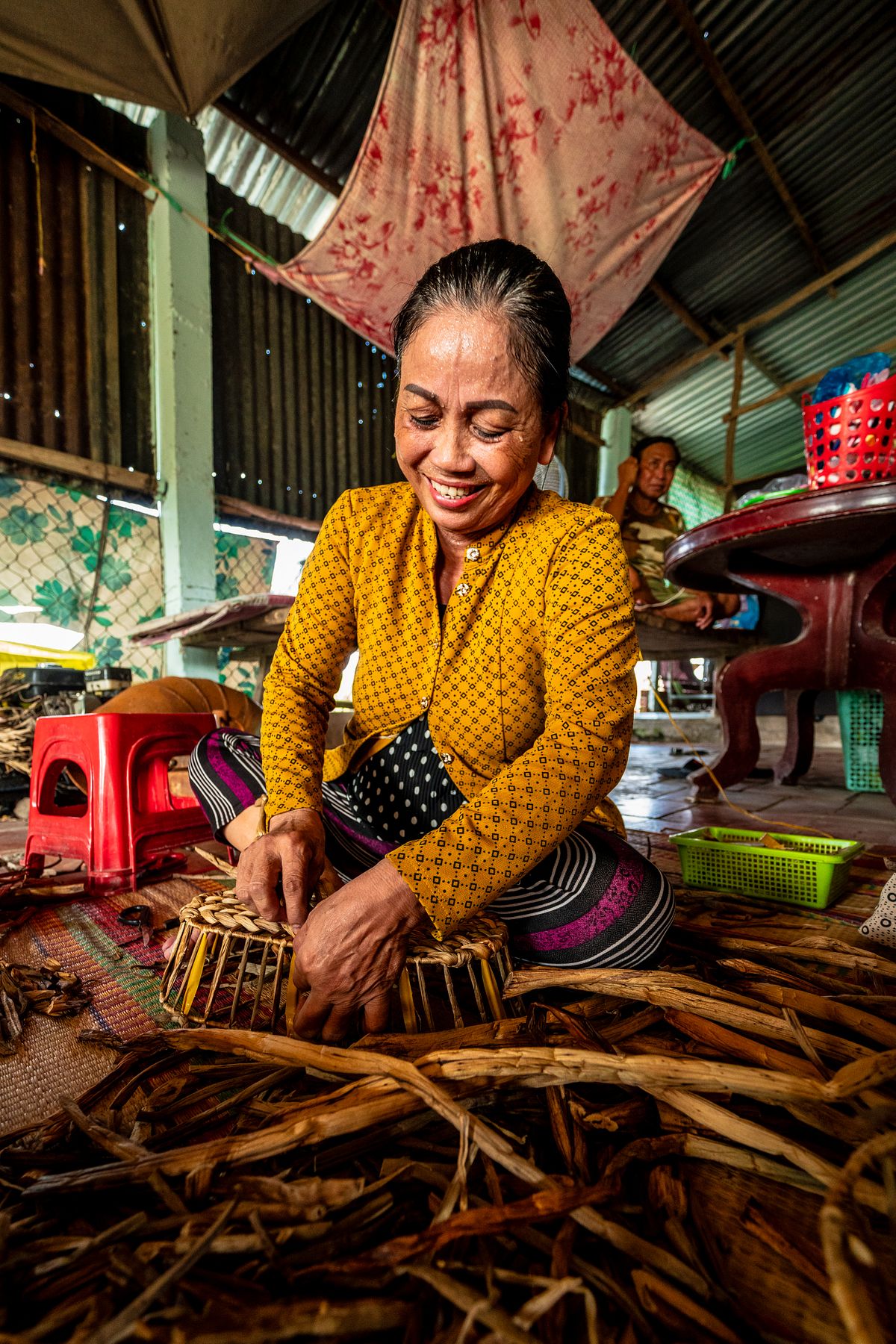
We witnessed similar, small-scale operations later in the day as well. 37 women in Vĩnh Đại Commune transform lục bình, a notoriously invasive and meddlesome plant, into commercially viable products. We visited one home where a woman was weaving strips of the water hyacinth into baskets, boxes and other home goods in coordination with local company Artex Đồng Tháp. The undertaking helps clear waterways of noxious weeds while simultaneously providing additional income to women in the community. Supporting women in the Delta is an important goal of the overall project because, unlike men, they are often unable to travel outside their homes to secure additional work. Thus, in addition to educational workshops led by experts from nearby universities on topics such as domestic abuse, the CRxN Mekong Project provided 25 zero-interest loans from a revolving fund to 25 different women.
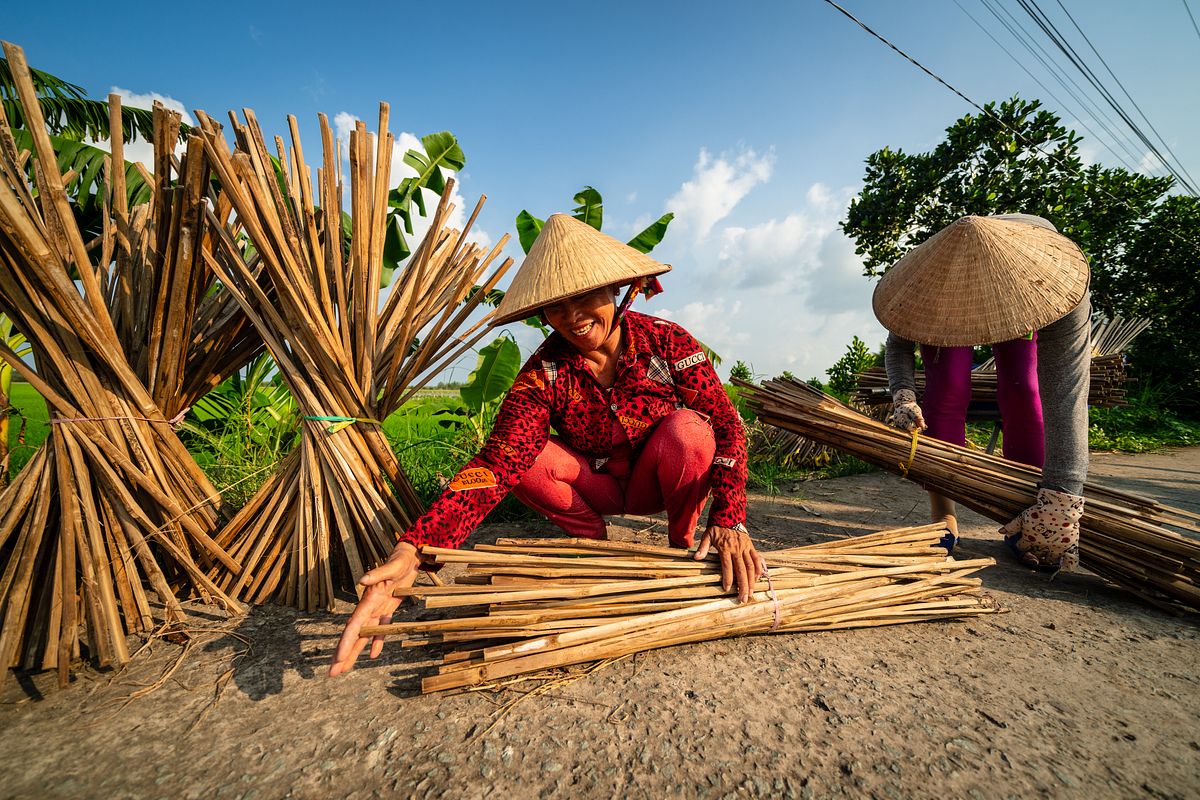
In the fields surrounding one home where the lục bình goods were crafted stretched proof of perhaps the project’s most drastic facet: the floating rice. The type of white rice we eat every day in Vietnam which constitutes the overwhelming majority of exported rice may be ubiquitous now, but it wasn’t always that way. Different, native varieties adapted to the region’s specific flooded conditions once covered the countryside. While the variant does not yield as large of harvests as conventional rice, because they evolved for this area they do not require devastating chemicals or drastic manipulation of water via dikes, making them far more responsible to grow. Planting floating rice during the flood season also allows the fields’ soil to rejuvenate as well.
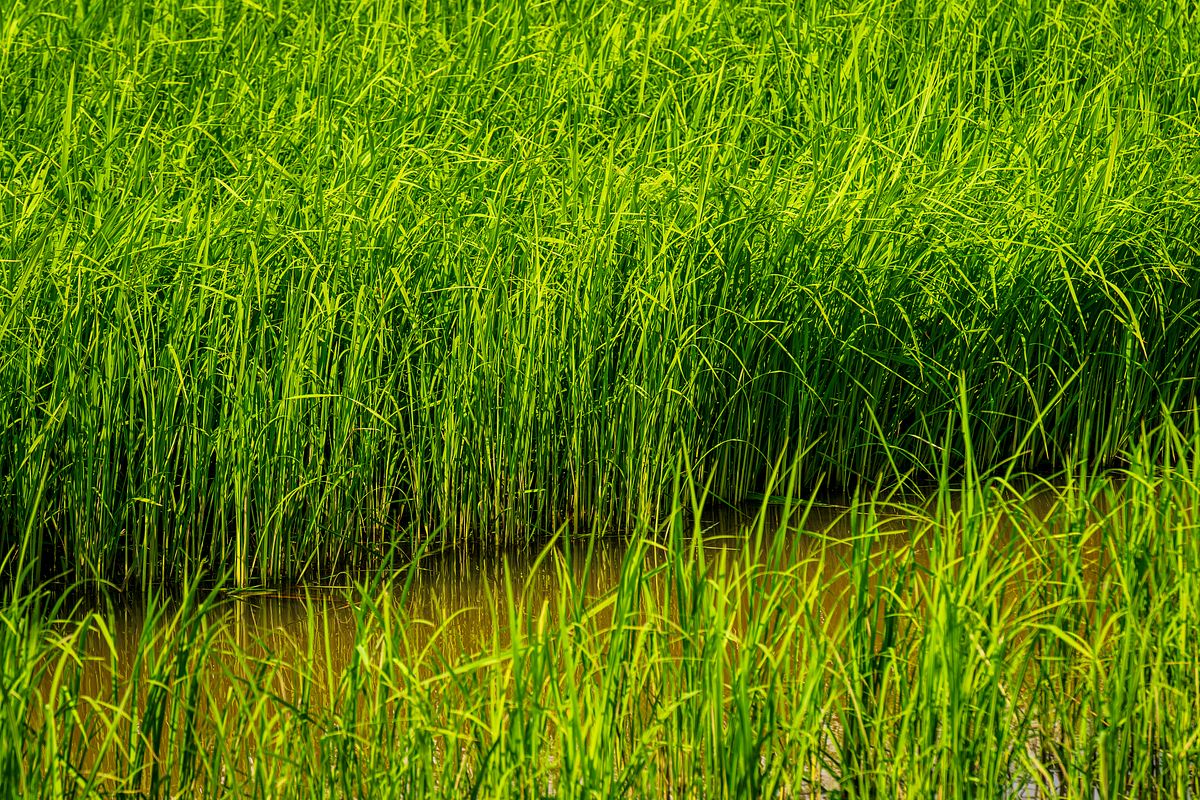
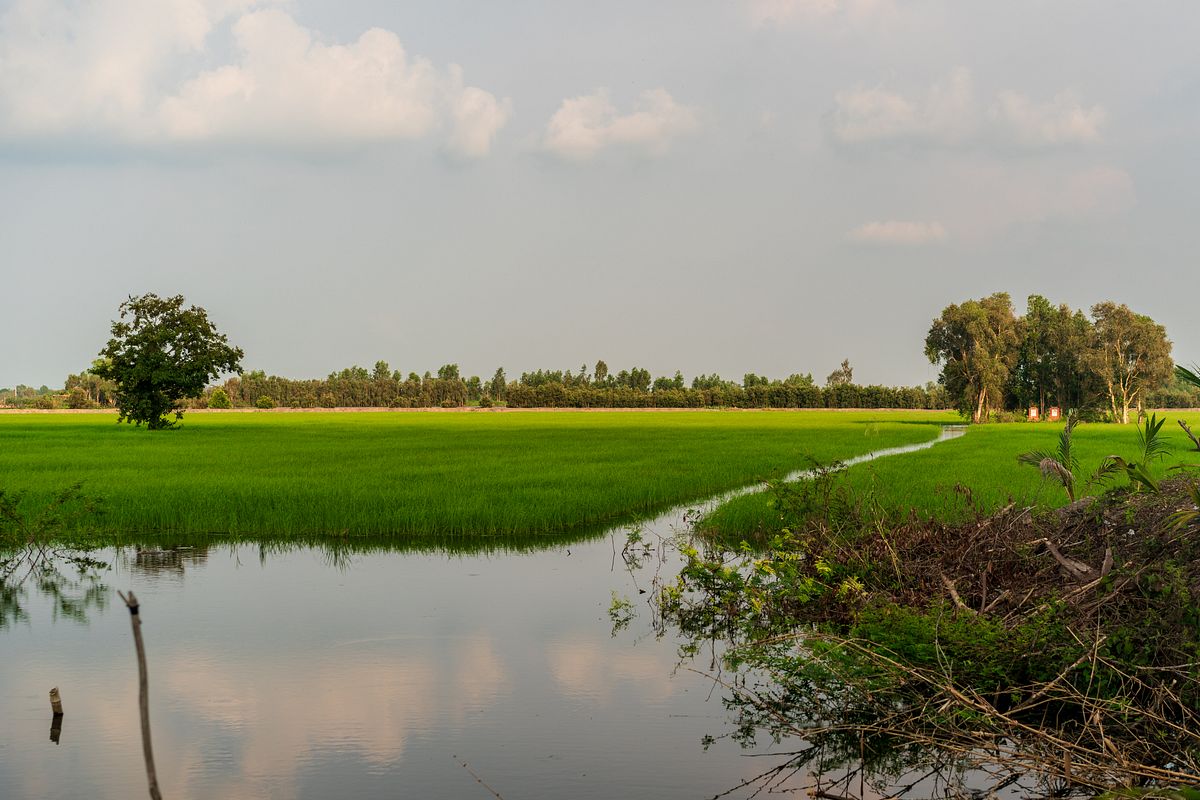
The CRxN Mekong Project purchased agricultural drones capable of carrying 50 kilograms of floating rice seeds for planting and provided trained pilots to operate them. Once harvested, the rice is sold domestically and abroad as well as used for value-added products such as rice milk, rice noodles and rice flour in cooperation with other local small and medium-sized enterprises (SMEs). And because the 100 hectares planted with the ancient grain do not need pesticides, their waters are safe for raising fish. The cá chốt, cá lóc and other native species grown there not only offer a great source of income but also reduce illegal or irresponsible fishing practices in the area.
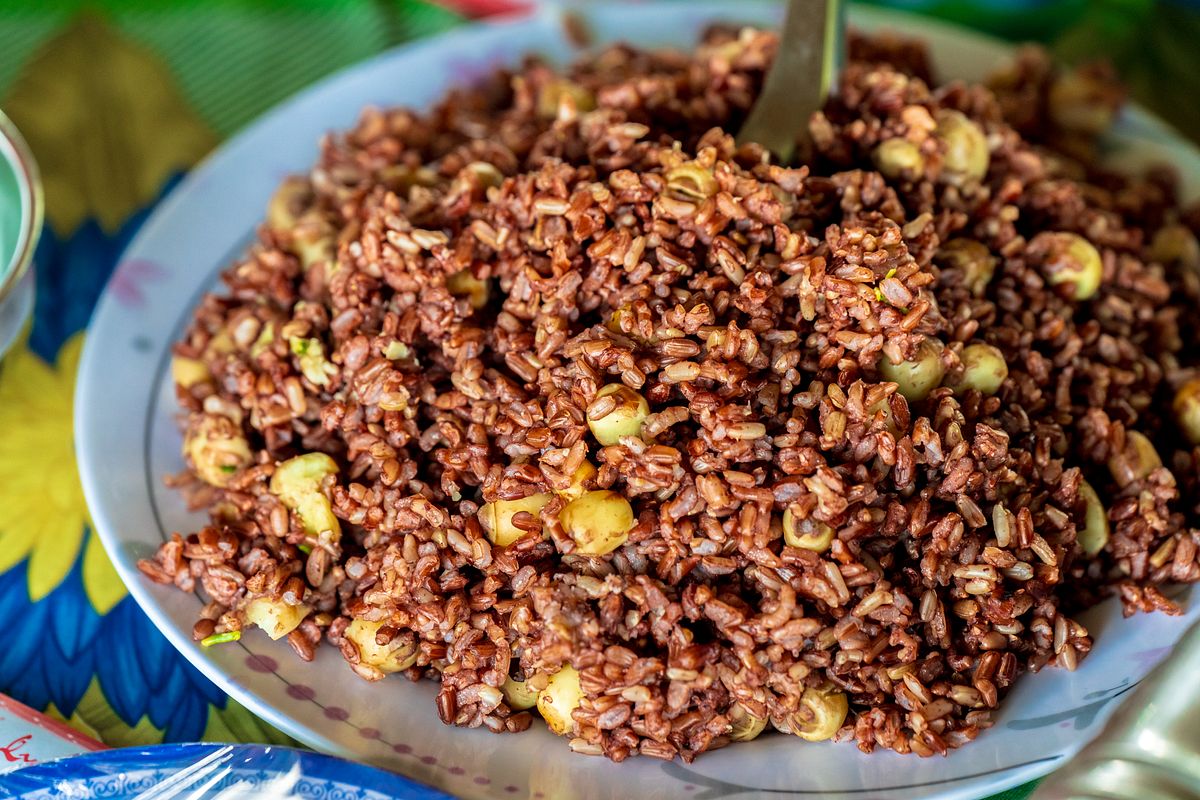
During our trip to Long An, we stopped for lunch at a conventional roadside restaurant, complete with rows of hammocks for post-meal naps. The feast included a heaping bowl of floating rice prepared with lotus seeds as well as fried cá chốt and grilled cá lóc. Served with the the smiles and casual friendliness one expects to find in the Delta, it exemplified why the region’s way of life was so important to protect along with the small but profound steps it will take to do so.
Climate Resilient by Nature (CRxN) is an Australian Government initiative, in partnership with WWF-Australia, advancing high-integrity, equitable nature-based solutions to climate change in the Indo-Pacific. Funding for this project in Vietnam is provided by the Mekong Australia Partnership – Water, Energy and Climate.

